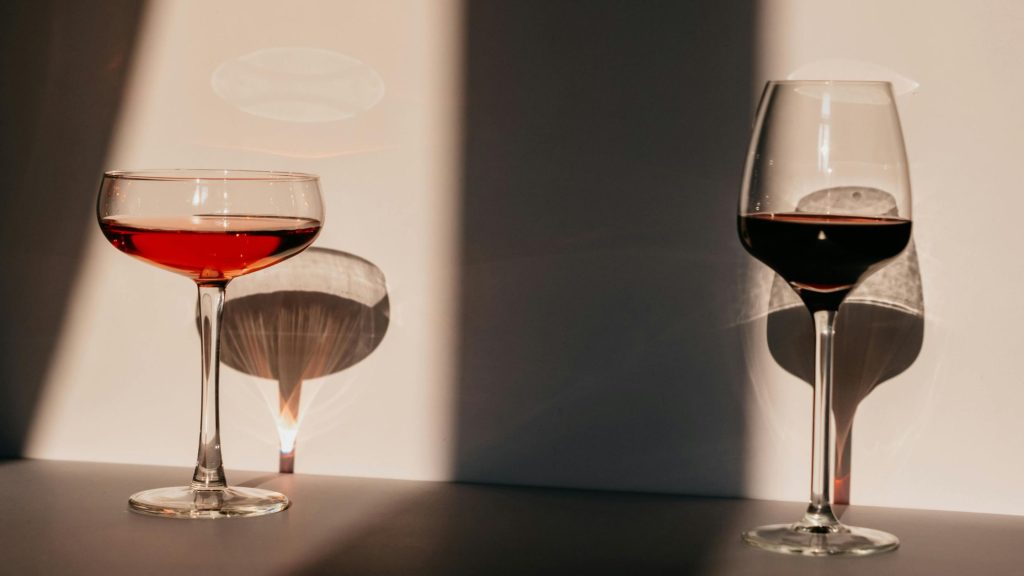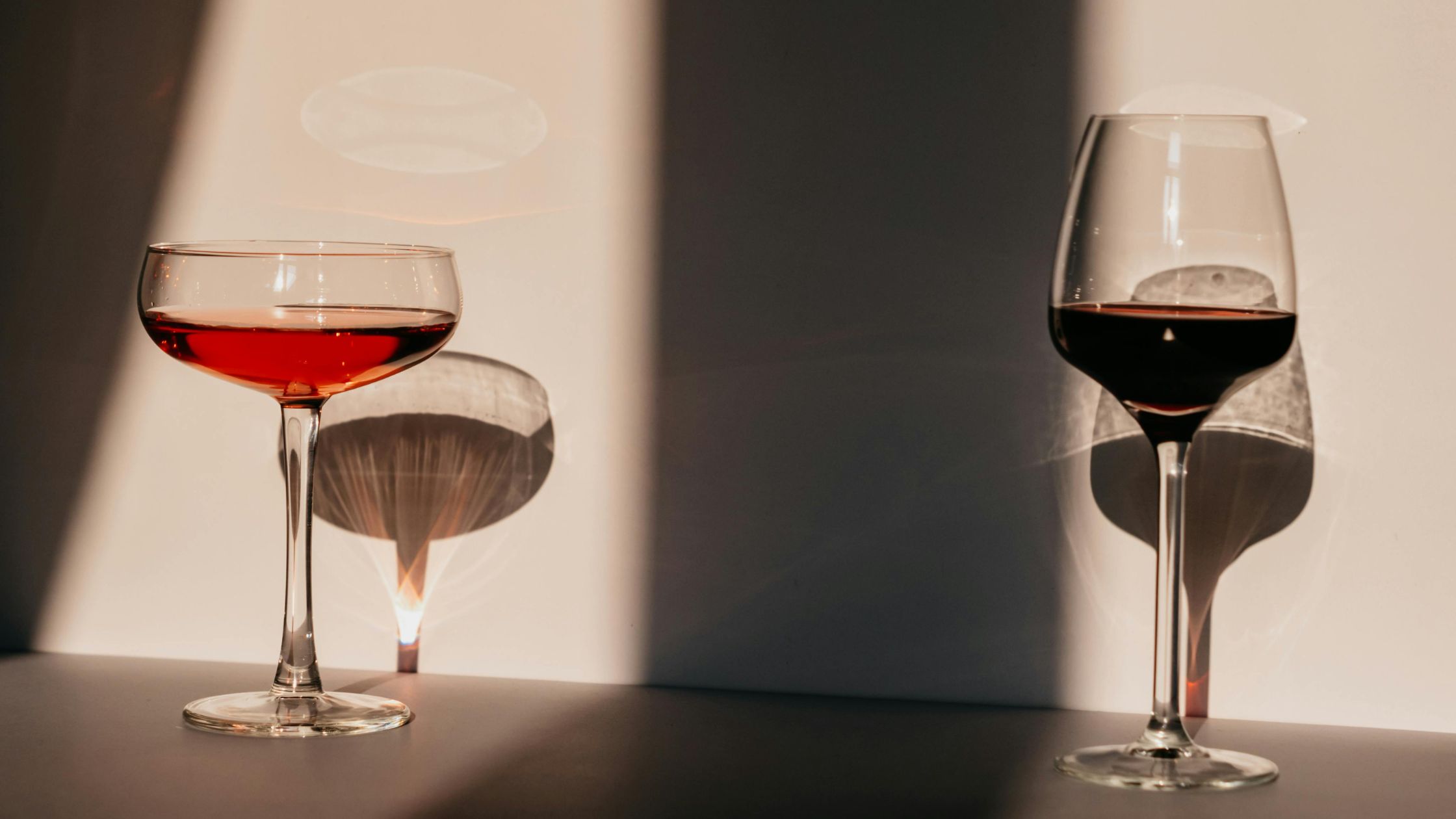
If you are a regular at party circles, chances are you are familiar with the terms “cocktail” and “mocktail”. While both terms sound similar, they refer to two entirely different things in terms of nature, composition, ingredients, and taste. Both these delightful beverages are served with the same purpose of providing you with refreshment, yet fundamentally they are very much different from each other in all aspects. To clear the misconceptions, we’ve come up here with a discussion regarding their key differences. Going through this blog, you’ll learn the nuances that set these two crafty beverages apart. In addition, you’ll also get an idea about their preparation methods, ingredients, and sociocultural contexts. So, read on.
Cocktails and Mocktails – The Definition
Before we focus on dissimilarities, let’s understand first what cocktails and mocktails are in reality. Here are the definitions.
Cocktail-The Art of Mixing Spirits
Cocktails are delectable concoctions between alcoholic and non-alcoholic beverages varying widely in terms of ingredients, look, and taste. A cocktail combines different types of ingredients comprising mostly of various alcohols, syrups, juices, and soda. The best cocktails even include fresh fruits and herbs apart from sweeteners, and flavours to enhance their taste and look. All these ingredients are mixed in accurate measurements to produce the best results. Originally, the term “cocktail” refers to a specific type of mixed drink containing spirits, sugar, and water. However, modern cocktails use variations in ingredients, their measurements, and blending techniques to create unique end products.
Mocktail – Spirited without Spirits
In contrast, mocktails are lip-smacking beverages prepared with non-alcoholic liquids such as soda water, artificial or original fruit juices, sweeteners, and colouring and flavouring agents. These non-alcoholic beverages are designed to recreate the taste and flavour of popular cocktails without including spirits in them. They are seen as a satisfying alternative to cocktails. Mocktails are made for those who don’t consume alcohol for personal, health, or cultural reasons. They are refreshing, indulging, and as well as tasteful. Finally, these great-tasting beverages have a global fan base despite the absence of alcohol in them.
The Difference between a Cocktail and a Mocktail
Now, that we have understood what these two drinks actually are, let’s discuss their differences.
The Difference in Ingredients
The main ingredient of a cocktail is alcohol. Cocktails get their distinct tastes from accurate measurements of alcoholic spirits and other liquids. Expert mixologists use various types of spirits such as vodka, gin, rum, whiskey, tequila, and beyond in different portion sizes to craft these artisanal beverages. Additionally, cocktails also include refined spirits like fortified wines and vermouth, to add depth to the final mixture. That’s not all. Cocktails further include mixers such as fruit juices, syrups, soda water, and flavouring agents to balance the potency of the spirits and taste.
On the other hand, a mocktail doesn’t include the main ingredient of a cocktail, i.e., alcohol. The key ingredients used in making a mocktail are botanicals, fresh fruits, herbs, and flavoured syrups. These are the building blocks for mocktail recipes. It uses various combinations and measurements of these non-alcoholic ingredients to replicate the flavours, tastes, and textures found in popular cocktails. The end results are vibrant glasses of soothing drinks full of refreshing flavours and relaxing aromas.
The Difference in Preparation
Cocktails are pure craftsmanship in a glass. Nothing is more important in a cocktail than mastery over mixing and measurements. And a trained mixologist knows how to use this art form with precision and finesse. He exercises utmost care in measuring and blending various ingredients. He has to balance the flavours, tastes, and textures and create a tempting presentation. In addition, he also needs to keep in mind the toxicity, and possible health effects of the final output. All these require a lot of knowledge and understanding about spirits. Traditionally, a mixologist employs various time-tested techniques such as layering, muddling, shaking, and stirring to extract maximum aroma and flavours from the ingredients. And the end result is often enchanting, to say the least.
Though the same mixing techniques such as muddling, shaking, and stirring are used to achieve balance and depth of flavour in mocktails, things are much easier and straightforward in this case. Fewer ingredients are used for mocktails while less precision is required on the part of the mixologist to get the desired outcome. Since mocktails mimic popular cocktails, they already have a reference to look forward to. The only task of the mixologist here is to extract flavours and aromas from ingredients using various techniques and create a drink that is as close to the original as possible in terms of look and feel.
The Difference in Culture and Origin
Cocktails have a rich history. They have been part of celebrations, festivities, and social gatherings for long. Cocktails reflect artistry, creativity, and aesthetics. They represent elegance and sophistication. They are present everywhere from parties and weddings to modern pubs and bars.
Mocktails, on the contrary, are late inclusions into the social contexts. These substitutes for cocktails have been created to promote inclusivity and hospitality at events and parties. In a broader sense, mocktails are parts of bigger marketing tactics adopted by bars and restaurants to appeal to a wider audience. However, mocktails also epitomize a growing awareness among individuals regarding alcohol-related toxicity. They prove that events and occasions can be celebrated with refreshing tastes without any need for intoxication.
The Difference in Prices
Cocktails are usually priced higher than mocktails because they contain alcoholic spirits which are, obviously, pricey. Generally, mocktails use artificial flavours and synthetic fruit juices which contribute to their relatively lower price. However, in certain places, mocktails can be costly too if they use original fruits and herbs.
Conclusion
Though both cocktails and mocktails are refreshing drinks created to provide soothing indulgence, they are completely dissimilar in terms of composition, ingredients, and preparation methods. In our discussion, we have shown how both these drinks are made. We have also talked about the precision required to produce such masterpieces. In addition, we have highlighted how mocktails were created as a sober alternative to their headier counterparts. We hope that this blog clears all your doubts regarding these two. So, cheers to all the crazy cocktail parties and family mocktail mashups.
Top of Form

